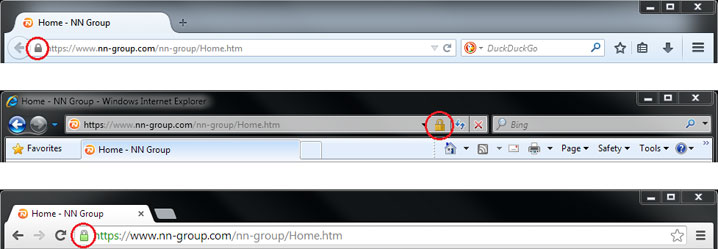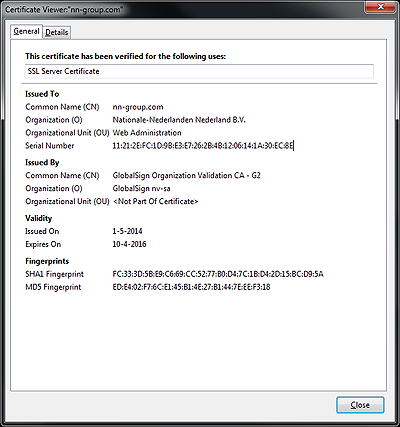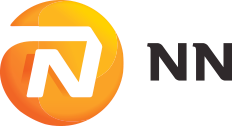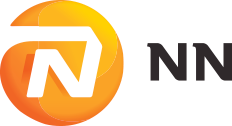Security
Background
NN provides the following general information to answer any concerns that you may have around the security of the internet, including online transactions.
NN makes every effort to provide optimal security of your data and of all transactions. For us, protecting our clients is just good business. Despite how hard we work, there are risks online and you can take some action to protect yourself. Here we provide some information to help you.
- NN’s standard practices
- Verifying websites
- Protect yourself
NN’s standard practices
NN may communicate with you by mail on occasion, so how can you tell which mails are from us, and which are fraudulent?
All communication from NN will follow these rules:
- We will never ask for you to confirm your security details e.g. username, password and secret code.
- We will not embed hyperlinks in emails that take you to sites where you must enter your security information.
- We will address you by name in any email.
If you have any doubt about any email you have received purporting to be from NN, you should contact us.
Verifying websites
You must be sure that you have a secure connection to the site you are entering and that it really belongs to NN. The NN websites are clearly recognizable and the internet address (URL) does not contain errors; www.nn-group.com is good, www.nn-gruop.com is not.
Check that the connection to the website is secure:
- The URL will begin with https://
AND
- The application window will specify that SSL (Secure Sockets Layer) Library.
If is the URL begins with https://, the secure lock icon (a small padlock) will appear on the browser. The appearance of the padlock icon may be different depending on the browser (version).

When you click on the padlock icon, information about the security certificate should appear. The certificate shows you who owns the website; it should show the name of NN or one of the brand names (e.g. Nationale-Nederlanden, AZL) . Verify that the data and validity are correct.
We work with well-known certification authorities such as OpenTrust (Keynectis) and GlobalSign. We will use state of the art encryption and authentication mechanisms to secure online communication and transactions.
If you receive a warning in your browser that there is something wrong with the certificate or the secure connection, you should stop using the website and contact us.
If you have any doubts about an NN website, you should contact us.

Protect yourself
Take care of your personal information
Your account number, customer number, digital certificate, PIN, password, memorable date and customer identification number are the keys to your account. Never write them down, never give them to anyone else and never include them in an email. Destroy documents containing personal information securely, and be very cautious in posting personal details to social networking sites on the internet, as criminals can use this information to commit fraud. Remember that protecting your customer number, digital certificate, PIN, password and security details is your responsibility.
Take care of your computer
Your online security is closely related to your computer's security. Take care of your computer to make it secure.
- Update your computer by installing the latest software and patches, to prevent hackers or malware from exploiting any known weaknesses in your computer.
- Install and update virus protection, to protect against viruses corrupting your computer and to prevent hackers from installing Trojan viruses on your computer.
- Install and update anti-spyware tools.
- Install and update personal firewalls.
- Use only programs from a known, trusted supplier.
Beware of spam emails
- Use a spam filter to avoid even seeing these messages.
- Never respond to a spam message, your email address is then recorded as live and the spam will increase.
- Should you read a spam message remember: if it sounds too good to be true, it probably is too good to be true.
- The US Federal Trade Commission provides information here on how to avoid phishing scams.
- The Anti-Phishing Working Group provides statistics on phishing attacks and advice for individuals and companies.
Ethical hacking
Read more about Ethical hacking & NN Group’s Responsible Disclosure Policy.

